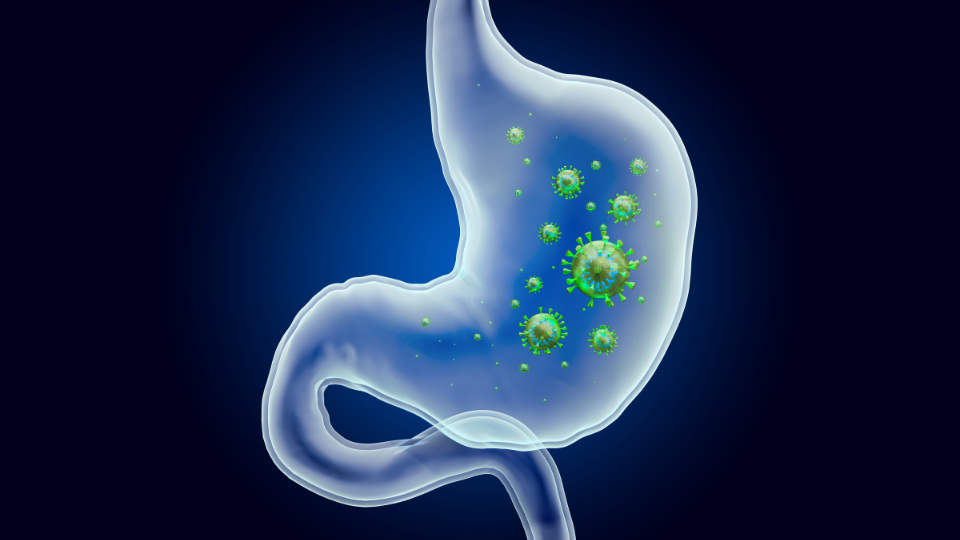The stomach flu, medically known as viral gastroenteritis, is a common ailment that can lead to discomfort and distress. Symptoms often include nausea, vomiting, diarrhea, and abdominal cramps. While many cases can be managed at home, there are specific situations where a visit to urgent care may be warranted. Understanding when to seek help can ensure you receive the appropriate care without unnecessary delays.
 Understanding the Stomach Flu
Understanding the Stomach Flu
The stomach flu is caused by various viruses, with norovirus and rotavirus being the most prevalent. These viruses can spread quickly, especially in crowded environments such as schools and nursing homes. Symptoms typically manifest within one to two days after exposure and can last from a few days to over a week. The rapid transmission of these viruses is often attributed to their resilience; they can survive on surfaces for extended periods, making it easy for them to spread through contaminated hands or food.
While the stomach flu is often self-limiting, it can lead to severe dehydration, particularly in vulnerable populations such as young children, the elderly, and those with weakened immune systems. Recognizing the signs of dehydration and understanding when to seek medical attention is crucial. In addition to dehydration, the stomach flu can sometimes lead to complications such as electrolyte imbalances, which can affect heart and muscle function. Therefore, it’s important to not only be aware of the symptoms but also to take proactive measures to maintain hydration and nutrition during illness.
Common Symptoms of Stomach Flu
Symptoms of the stomach flu can vary in severity, but common indicators include:
These symptoms can lead to dehydration, which is characterized by dry mouth, decreased urination, dizziness, and fatigue. If you or someone you know is experiencing these symptoms, it’s essential to monitor their condition closely. In addition to these physical symptoms, some individuals may also experience psychological effects such as anxiety or depression due to the discomfort and disruption of daily activities caused by the illness. It’s important to provide emotional support to those affected, as mental well-being can significantly influence recovery.
When to Consider Urgent Care
While many cases of stomach flu can be treated at home with rest and hydration, certain situations may require urgent care. Here are some key indicators:
Severe Dehydration: If symptoms of dehydration are present, such as extreme thirst, dry mouth, or reduced urine output, it’s essential to seek medical attention.
Persistent Vomiting: If vomiting persists for more than 24 hours, it may be time to visit urgent care. This can prevent further dehydration and allow for necessary interventions.
High Fever: A fever above 101°F (38.3°C) that lasts for more than three days should be evaluated by a healthcare professional.
Additionally, it is important to be aware of any unusual symptoms that may accompany the stomach flu, such as blood in vomit or stool, which could indicate a more serious condition requiring immediate medical attention. Monitoring the overall health of the affected individual is essential, as the presence of underlying health issues can complicate recovery and necessitate a more aggressive treatment approach. Seeking timely medical advice can help ensure that any complications are addressed promptly, leading to a more favorable outcome.
Self-Care Measures for Stomach Flu
Before deciding to go to urgent care, there are several self-care measures that can be taken to alleviate symptoms and promote recovery. These measures are particularly effective in mild cases of stomach flu.
Staying Hydrated
Hydration is the cornerstone of recovery from stomach flu. Drinking clear fluids such as water, broth, or electrolyte solutions can help replace lost fluids and prevent dehydration. Avoid caffeinated and alcoholic beverages, as they can exacerbate dehydration.
In some cases, oral rehydration solutions (ORS) can be beneficial. These solutions contain a precise balance of electrolytes and sugars to aid in rehydration. They are especially useful for children who may be more susceptible to dehydration. Additionally, incorporating fluids like coconut water or herbal teas can provide extra nutrients and soothing properties that may help ease discomfort.
Rest and Recovery
Rest is vital for the body to recover from any illness, including the stomach flu. Taking time off work or school can help facilitate a quicker recovery. It’s essential to listen to your body and avoid strenuous activities until symptoms improve.
Eating small, bland meals can also aid in recovery. Foods such as toast, rice, bananas, and applesauce are gentle on the stomach and can help restore energy without overwhelming the digestive system. Gradually reintroducing more complex foods, such as steamed vegetables or plain chicken, can further assist in rebuilding strength. It’s also beneficial to eat smaller, more frequent meals rather than larger ones, as this can help minimize any potential discomfort while the digestive system is still sensitive.
Moreover, maintaining a comfortable environment can significantly enhance recovery. Keeping the room cool and well-ventilated, along with using soft pillows and blankets, can help create a soothing atmosphere that promotes rest. Engaging in light activities, such as reading or listening to calming music, can also provide mental distraction and contribute to overall well-being during this recovery period.
When to Seek Professional Help
In some cases, self-care may not be sufficient, and professional medical assistance is necessary. Recognizing the signs that indicate a need for urgent care is crucial for ensuring proper treatment.
Signs of Complications
Complications from the stomach flu can arise, particularly in high-risk populations. If any of the following symptoms occur, it’s essential to seek urgent care:
Severe Abdominal Pain: Intense pain that does not subside may indicate a more serious condition.
Blood in Vomit or Stool: This can be a sign of a serious infection or other gastrointestinal issues.
Neurological Symptoms: Symptoms such as confusion, difficulty waking up, or seizures warrant immediate medical attention.
Using Telehealth Services
For those unsure about whether to visit urgent care, telehealth services can provide valuable guidance. Doctronic offers convenient access to healthcare professionals who can evaluate symptoms and recommend appropriate next steps. With 24/7 availability, patients can receive timely advice without the need to leave home.
Doctronic’s AI-driven platform allows users to have free AI doctor visits, providing a preliminary diagnosis that can help determine whether urgent care is necessary. This innovative approach to healthcare ensures that patients receive personalized care tailored to their needs.
Moreover, telehealth services can be particularly beneficial for individuals living in remote areas where access to healthcare facilities may be limited. By utilizing virtual consultations, patients can avoid long travel times and potential exposure to other illnesses in waiting rooms. This not only streamlines the process of seeking help but also enhances the overall patient experience, making healthcare more accessible and efficient for everyone.
Additionally, telehealth can offer follow-up care for patients recovering from stomach flu or other gastrointestinal issues. After an initial consultation, healthcare providers can monitor symptoms and adjust treatment plans as necessary, ensuring that patients are on the right path to recovery. This continuity of care is vital, especially for those who may experience lingering effects or complications from their illness.
Preventing the Spread of Stomach Flu
Prevention is key when it comes to managing the stomach flu, especially in communal settings. Understanding how to minimize the risk of transmission can help protect yourself and those around you.
Good Hygiene Practices
Practicing good hygiene is one of the most effective ways to prevent the spread of the stomach flu. This includes:
Washing hands frequently with soap and water, especially after using the restroom and before eating.
Avoiding close contact with individuals who are sick.
Disinfecting commonly touched surfaces, such as doorknobs, light switches, and mobile devices.
Encouraging these practices in schools and workplaces can significantly reduce the likelihood of outbreaks. Furthermore, it is essential to educate children about the importance of handwashing, as they may not always understand the risks associated with germs. Incorporating fun songs or games related to hand hygiene can make the practice more engaging for younger audiences.
Vaccination and Awareness
While there is no vaccine specifically for the stomach flu, vaccines are available for certain viruses that can cause gastroenteritis, such as rotavirus. Staying informed about vaccination options can help protect vulnerable populations. For instance, infants and young children are particularly susceptible to rotavirus, and vaccination can significantly reduce the severity of the illness in these age groups.
Additionally, being aware of the symptoms and transmission methods of the stomach flu can empower individuals to take proactive measures to protect themselves and their families. Symptoms such as vomiting, diarrhea, and abdominal cramps can appear suddenly, making it crucial to recognize them early. Education is a powerful tool in preventing the spread of illness, and sharing information through community workshops or health fairs can foster a culture of awareness and preparedness, ultimately leading to healthier environments.
 Smart Care for Stomach Flu: Know When to Act
Smart Care for Stomach Flu: Know When to Act
The stomach flu can be an uncomfortable and distressing experience, but understanding when to seek urgent care can help ensure a swift recovery. Recognizing the signs of dehydration, complications, and the importance of self-care is crucial in managing this illness.
Utilizing telehealth services like Doctronic can provide valuable insights and guidance, allowing patients to make informed decisions about their health. By practicing good hygiene and staying informed, individuals can help prevent the spread of the stomach flu and protect themselves and their communities.
In summary, while many cases of stomach flu can be managed at home, knowing when to seek professional help is vital. If symptoms worsen or complications arise, don’t hesitate to visit urgent care or consult a healthcare professional. Your health and well-being are paramount.
Experience the Future of Healthcare with Doctronic
Don't let the stomach flu disrupt your life more than it has to. With Doctronic, you can access the #1 AI Doctor from the comfort of your home. Our AI-driven platform offers free AI doctor visits, providing you with a quick and accurate diagnosis that you can take to any doctor for further treatment. If you need more personalized care, our telehealth video visits connect you with our doctors 24/7, in all 50 states, for less than $40. Over 10 million people have already experienced the convenience and quality of Doctronic's revolutionary care. Skip the line. Talk to an AI Doctor Now, for free.



 Understanding the Stomach Flu
Understanding the Stomach Flu Smart Care for Stomach Flu: Know When to Act
Smart Care for Stomach Flu: Know When to Act